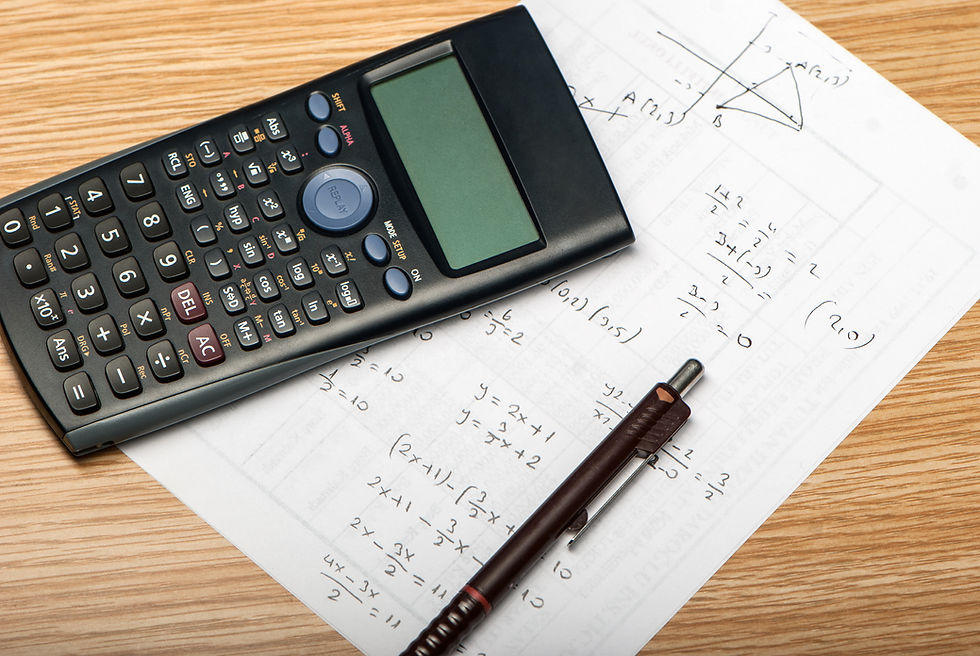Effective Revision for GCSE or IGCSE Maths: Tips for Success
- Hannah Brady

- Apr 5, 2023
- 2 min read
GCSE maths is a subject that many students find challenging. Unlike other subjects where memorising facts can be enough to succeed, maths requires a deeper understanding and application of mathematical techniques. In this article, we will provide you with some useful tips for revising maths that will help you achieve success in your GCSEs.

Our Key Strategies for GCSE Maths Revision:
1. Start with a topic list
The first step to effective revision for GCSE maths is to create a topic list. This will help you identify which topics you need to focus on the most. You can use resources such as The GCSE Maths Tutor to create a list of all the topics you need to cover. By starting with a topic list, you can plan your revision more effectively and ensure that you cover all the necessary topics.
2. Begin with the tricky topics
Don't shy away from the topics you find challenging. Instead, tackle them first and seek help from teachers, tutors, or online resources like Youtube or TikTok. It's important to understand that it's okay to find certain topics difficult. By starting with the tricky topics, you can build your confidence and make the rest of the revision process easier. Additionally, seeking help from others can provide you with valuable insights and tips that you may have missed on your own.
3. Question, Question, Question
The key to mastering maths is practice. Work through lots of questions on each topic until you feel confident. This is where resources such as past papers, textbooks, and online resources come in handy. By practicing as much as possible, you will not only become more confident with each topic, but you will also develop your problem-solving skills, which will be invaluable in your GCSEs and beyond.
4. Consolidate your mistakes
When you get a question wrong, take note of your mistakes and try to understand where you went wrong. This is a crucial step in the revision process. By identifying your mistakes, you can learn from them and avoid making the same errors in the future. Make sure to take the time to understand why you made a mistake and what you can do to avoid it in the future.
5. Progress to maths papers
Once you feel confident with each topic, progress to past papers to test your knowledge and identify areas you still need to work on. This will help you get a better understanding of what to expect on the day of your GCSEs and identify any gaps in your knowledge. Additionally, past papers are a great way to simulate exam conditions and develop your time-management skills.
Remember, it's important to start early and set aside enough time for revision. Try to avoid spending too much time on topics you already know well and focus on the ones that challenge you the most. By following these tips, you will be well on your way to success in your GCSE maths exams. Good luck!

Comments